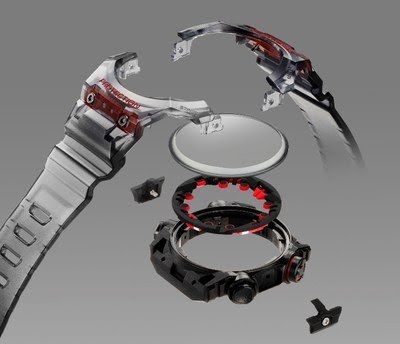Annual event serves as a platform to expand and develop the Internet in Africa
KIGALI, Rwanda, Aug. 23, 2022 /PRNewswire/ — Rwanda is for the first time hosting this year’s Africa Peering and Interconnection Forum (AfPIF) in Kigali. The forum is organized by the Internet Society (ISOC) and the African IXP Association (AFIX) in collaboration with the Rwanda Internet Community and Technology Alliance (RICTA). Running from 23 to 25 August at the Marriott Hotel, the event has convened stakeholders from across the continent and globally including Meta, Google, Liquid Intelligent Technologies, Microsoft, the Internet Initiative Japan Lab, and Africa Data Centers, among others.

The annual event, now in its 11th edition, serves as a platform to expand and develop the African Internet. It connects infrastructure, service, and content providers to identify ways to improve network interconnection, lower the cost of connectivity, and increase the Internet’s resiliency and experience for local users. It also provides participants with global and regional insights for maximizing opportunities to help grow Internet infrastructure and services in Africa.
AfPIF was created to address the fact that most of Africa’s local Internet traffic is exchanged outside the continent. Exchanging traffic locally through Internet Exchange Points (IXPs) reduces Internet access costs and network delays and increases content access speeds.
IXPs are technical infrastructures that enable a faster, cheaper, and more reliable Internet experience by bringing multiple networks from the private, public, and educational sectors together to connect and exchange Internet traffic. Instead of using expensive international transit routes, Internet traffic is exchanged locally and access speeds for content can be up to 10 times faster as result.
This year’s AfPIF focuses on Internet interconnection dynamics, content distribution, and transit obstacles at local and regional levels. The Kigali forum marks a return to in-person meetings since AfPIF’s postponement in 2020 due to the COVID-19 global pandemic.
Rwanda Permanent Secretary for the Ministry ICT and Innovation Mr. Yves Iradukunda said: “Broadband Internet access and utilization have a profound impact on the improvement of services delivery across all sectors of our economy. Today, Internet usage enables better outcomes in learning, delivering healthcare, managing better our energy resources, and achieving higher citizen engagement with the Government.
We are, therefore, very pleased to host this year’s Africa Peering and Interconnection Forum, a meeting that will discuss how to improve network interconnection locally and within the region.”
Michuki Mwangi, Distinguished Technologist, Internet Society said: “We have made considerable progress in the establishment of new Internet Exchange Points (IXPs) while supporting the growth of existing ones. However, we have yet to realize the full impact of exchanging Internet traffic at the 49 IXPs across 35 countries in Africa. For this to be achieved, we are taking lessons from the report ‘Moving Toward an Interconnected Africa: The 80/20 Initiative‘ and focusing on growing the number of local, cross-border, and international networks that connect at IXPs. We believe this is possible with enhanced collaboration between Internet service providers, mobile network operators, content providers, large enterprise networks, and policy makers.https://www.
Grace Ingabire Mwikarago, Chief Executive Officer, RICTA, said: “We are honored to host this unique conference. The importance of IXPs in contributing to the overall socio-economic development of Africa cannot be overstated, especially in critical situations such as the COVID-19 pandemic. IXPs enable online learning and remote work in such circumstances. Email, videoconferencing, mobile communication, and messaging also make social distancing more bearable, helping people adapt to the new normal. Without these technologies, thousands of companies would not be operational.”
Kyle Spencer, Co-Coordinator of the African IXP Association, said: “Rwanda is a small landlocked country that promoted its economic development and regional independence by combining progressive telecommunications policy with an investment-friendly business climate. As a key gateway between East and Central Africa, Rwanda is an ideal venue for discussing the challenges and opportunities in our region.”
Ben Roberts, Group Chief Technology and Innovations Officer at Liquid Intelligent Technologies, said: “At the heart of the accelerated digital transformation in Africa are the peering and exchanges of the Internet and digital infrastructure. Therefore, it is vital for people from the Internet community to reconvene in person to understand the advancements made and the journey ahead. Liquid Intelligent Technologies is a critical player in the TMT industry, and we are proud to be the platinum sponsor of AfPIF 2022.”
Founded by Internet pioneers, the Internet Society is a non-profit organization dedicated to ensuring the open development, evolution and use of the Internet. Working through a global community of chapters and members, the Internet Society collaborates with a broad range of groups to promote the technologies that keep the Internet safe and secure, and advocates for policies that enable universal access. The Internet Society is also the organizational home of the Internet Engineering Task Force.
The African IXP Association is a group of Internet Exchange Point (IXP) operators from across Africa, brought together by a shared need to coordinate and exchange knowledge. It aims to foster an enabling environment for IXP operators, improve connectivity within the continent, and increase the Internet’s value for all. AF-IX was established in 2012, joined the Internet Exchange Federation in 2014, and now organizes the annual African Peering and Interconnection Forum (AfPIF).
RICTA is a not-for-profit organization representing the interests of the Rwandan Internet community. It was formed in 2005 with the objective of managing the .rw country code top-level domain and the Rwanda Internet Exchange Point, as well as promoting the localisation of local content. RICTA’s impartial position ensures that it enhances and promotes Internet usage in Rwanda.
Logo – https://mma.prnewswire.com/




